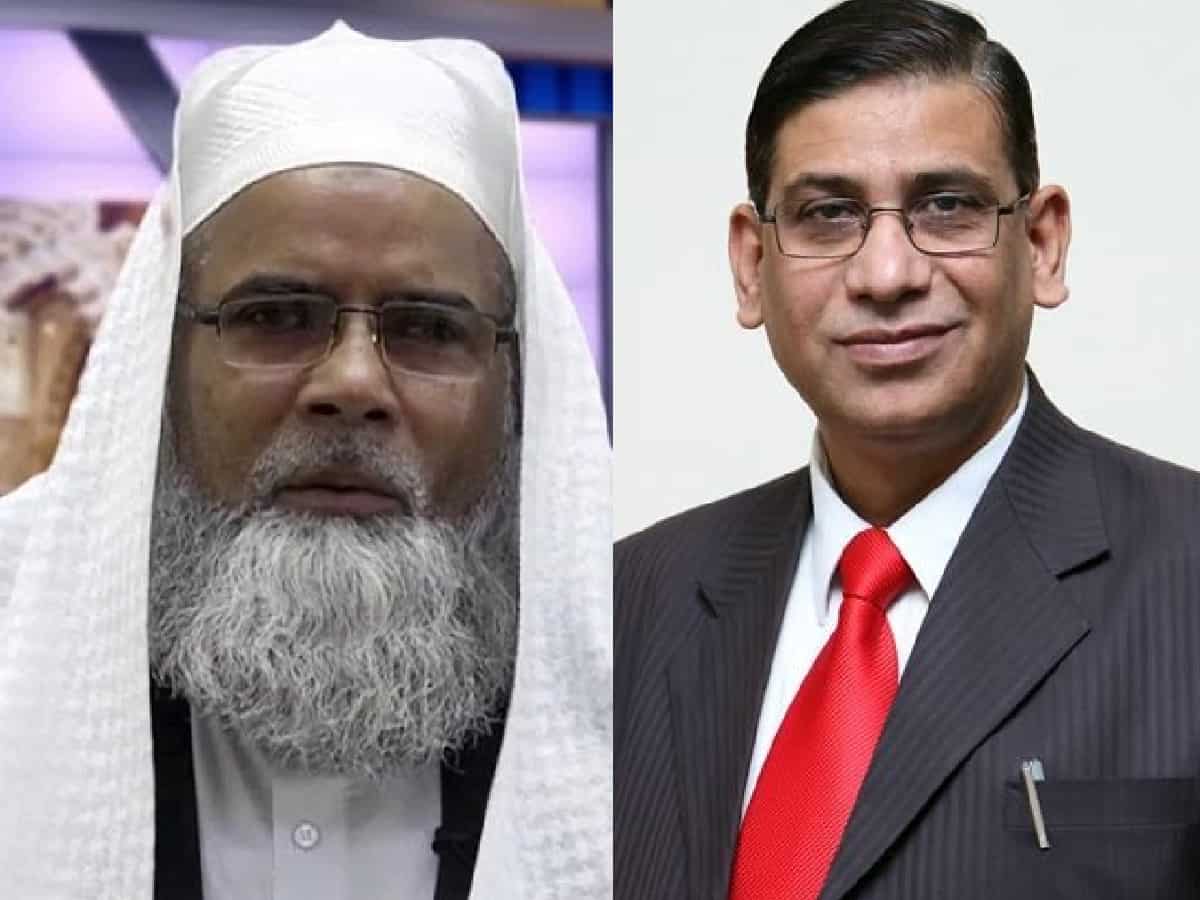
Hyderabad: The controversy over the umbrage taken by Maulana Khalid Saifullah Rahmani, Secretary, All India Muslim Personal Law Board (AIMPLB), at the remarks of Faizan Mustafa, Vice Chancellor, NALSAR University, that the law of the land would prevail over the Shariah law, has deepened with the latter coming out strongly in defence of what he stated at a recent book release function here.
In a video uploaded today as part of his Legal Awareness Web Series, Faizan Mustafa counter questioned whether Muslims are governed by religion or laws made by the Parliament? Reacting to the report published by Siasat.com, he said as citizens of the country people have no choice but to follow the country’s legal system. Even those who are not citizens are also bound by the country’s laws the moment they land in its territory. The same is the case with other countries.
“Therefore to ask the people whether they considered the law of Parliament supreme or the law of Shariah is not a proper question at all,” the Vice Chancellor said and added that perhaps the Maulana also did not want to put it the way it is reported.
Acknowledging that he had immense respect for the Maulana and also for experts of every field, he described Maulana Rahmani as a renowned scholar and an expert in Islamic law. “But my expertise is law and not religion. I can’t show to the country what religion is and it is not my duty either,” he remarked.
In a detailed clarification he declared that he is not trained in theological questions nor are judges trained in common law. Cases that come to the court are decided on the basis of law and judges should not wade into the field of theology – be it Hindu, Christian, Jain or Islamic–since law and theology are two different things. Law prescribes human behaviour from which it judges deviants. Moreover, it is the Constitution which gives the freedom of religion and also lays down its limitations. “We can follow religion to the extent it doesn’t affect public order, health, morality and other fundamental rights,” the VC said.
He recalled how he questioned the essentiality doctrine in the Sabrimala case. The Supreme Court has accepted his argument and constituted a larger bench which is examining whether the judiciary has to decide the essential and non essential features and practices of a religion.
The VC further stated that one is free to believe in one God, Trinity, Nirakar or Sakar. It is a thing which law doesn’t determine. But everyone is bound by the laws made by the Parliament and State Assemblies. In this connection he referred to various Acts like the Dissolution of Muslim Marriage Act 1939, Maternity Benefits Act, LIC Act, Consumer Protection Act, Dowry Prohibition Act, Minimum Wages Act and said everyone is bound to follow them.
Fazian Mustafa wants everyone to know that freedom of religion guaranteed by the Constitution is not an absolute right. It is a restricted right subject to non violation of other fundamental rights. A law can be a law as long as it is consistent with the Constitution, he said and wanted religions to bring in flexibility and make liberal interpretation of their laws so that there is no confrontation with the law of the land. In case of confrontation the law of land will be followed and religion has to give way. In case of conflict between religion and freedom of speech, the latter will prevail and so will the right to equality and personal liberty.
When contacted, Maulana Rahmani said in the Islamic jurisprudence there is scope for change as per the needs of the time. But change is not possible in commands which are clearly established through the Quran and Hadith. However, rules based on ijtehad (independent reasoning), whoever they may be of, can be changed and are being changed.
Fellow countrymen believe in the existence of Shri Ramji, whose period is several lakh years ago. No historical proof can be presented about it and yet the court has accepted it since it is the belief of the people. In the same way it is the belief of Muslims that the commands given in the Quran and Hadith are from Allah and with the same spirit and belief the Shariat Application Act of 1937 is made. Therefore, it is wrong to think that Muslim Personal Law doesn’t enjoy the status of law,” the Maulana said.
He further stated that the Constitution has permitted everyone to act as per his belief and conscience provided it doesn’t hurt others. All the laws that come under the gambit of Muslim Personal Law are of the same nature. Muslims consider these as unchangeable laws given by Allah and his Messenger. It is wrong to say that Islam has become out of date or its rules have become obsolete. Man made laws become outdated and are amended repeatedly. “But the divine law is up-to-date since it is made by the Creator who knows the present and also the future,” he said.
The Maulana clarified that Muslims are not against the administrative laws made by the Parliament. But if they are against Shariah and morality, Muslims have to keep away from them. Like a man and woman living together without nikah is sin in the eyes of Shairah, although the law may permit it. “But it is necessary to escape from it”, he said.
Acknowledging the expertise of Faizan Mustafa in the field of law, the Maulana said he is of great value to the community and the nation. But it doesn’t mean that one can’t differ from his views, he remarked.



